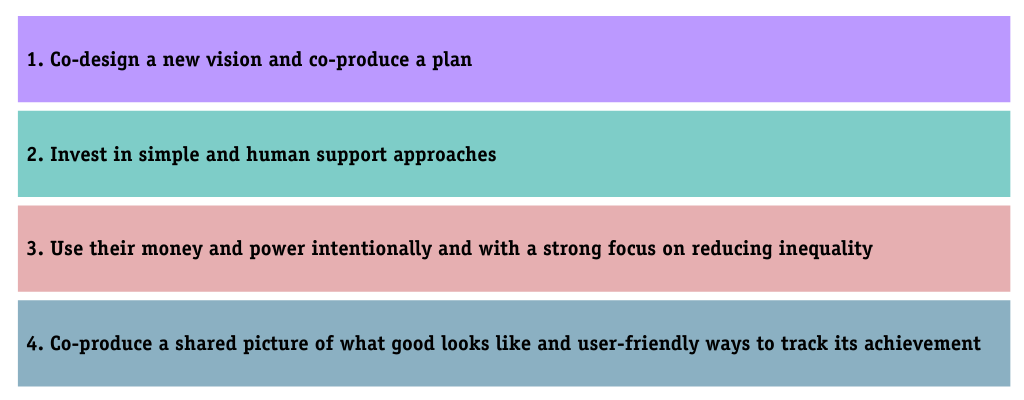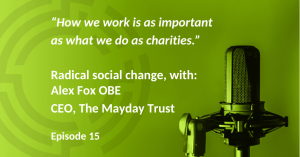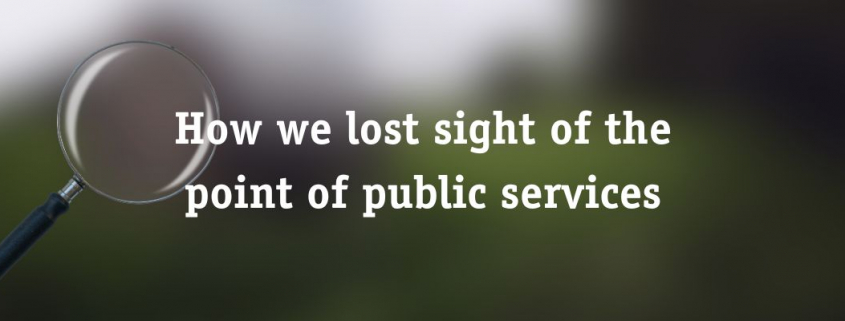Navigating Invisibility and Regaining Control
Brook works with some of the Mayday team in Haringey, North London, using what he has learned from his own experience of systems surrounding public services to help the council and other organisations design more compassionate and effective responses to people going through tough times. Brook joined the Mayday team to speak at Shelter’s Conference ‘A system’s response to housing’ in March 2023. Brook shared:
When I was 19 or 20, my mental health broke down when I was at university, and I was sectioned. When I was deemed to be well enough, I was discharged with a support worker/ social worker who was tasked with supporting me back into society, which included support into housing. Which did not work. Everywhere you went, you had to present yourself and detail your experience. Which meant continuously living under the umbrella of your condition. So I made the decision to leave and start afresh. Which to me meant being employed and housed (privately). It also meant I had some control over setting a life not stigmatised (or defined) by my mental health collapse.
I don’t think many people take into consideration how impactful the labels that follow these situations are. Your social standing, personal pride and how people see you are affected on top of your situation.
What most magnifies the impact of labels is the systems for claiming support. I had to repair the degradation of this and recover from the humiliation. There is little support in coming to terms with your circumstance, acknowledging it and moving on with a better foundation.
After I got better, I was feeling good about being in work and having my own place, but I had a relapse in my mental health and stopped going to work and paying my rent. Because I’d managed to build a new life away from mental health issues, I had no connection with any organisations or support mechanisms. When I got evicted, it was like the people at the court didn’t even see me. I got home and found the locks were changed. I just decided to go for a walk and that was the start of living on the streets.
Something I want services to understand is how hard it is to find them when you are in a crisis and finding it hard to function. As a vulnerable person, your visibility is low and sourcing support is very laborious. It requires you to be very active and to know your way around the systems, which people don’t. So I ended up sitting in A&E for a few days because I remembered seeing homeless people using it for shelter, and it was the only option I could think of, but I couldn’t stay there forever.
The services I needed had nothing on the buildings saying they were for people who were homeless- why not make it really clear where to go? It’s like they are trying to hide or gatekeep their resources rather than helping people who need them most to find them. Feeling like they don’t want you to find them has a deep impact on you at your lowest point.
Services don’t think about what it’s like to be someone trying to access them when you are at your lowest. They have their ideas of what you need, and what the next step is, but that wasn’t my idea at the time. Being homeless was a terrible experience but it was also a way out of the stress of rent, bills, and a job: commitments and interactions which I hadn’t been able to keep or manage.
My situation was robbing me of any control; in comparison to how much the system required of me to navigate and engage, homelessness gave me back control without any stigma, which may seem strange looking at it from my current perspective.
Services said you are at A, so next you go to B, then C. You are homeless, so in their eyes, each step has to be better than where you are, but I was thinking What then? I could just end up in crisis again. A lot of people want to get back to who they were before their circumstances changed. It is hard to come to terms with what you have lost when you are stuck in trauma, and that you may not be able to get back to where you were. That becomes a major barrier to accepting support. People working in services don’t understand that and define people as problematic. You have not necessarily come to terms with it. So your attitude is questioned.
I wasn’t seeing my problems in pieces, it felt like it was all one big thing and they couldn’t see the whole picture for me. They see your crisis as the starting point, but the crisis is always the last thing in the long series of events that led to it. It is the beginning and the ending. And the trauma means that you still see yourself not at point A but at point Z: homelessness, which is what you believe will happen again. So when you are put on this conveyor belt of support, your attitude is questioned. You’re not being problematic, it’s just that what you want to do is work backwards. Go back to who you were pre-trauma not necessarily to a new you which you still assume you will succumb to the last tragedy.
All my confidence had gone, I couldn’t express myself clearly. You get so far away from society, that bringing you back in from the cold is not simple – it’s not just practical help. The message feels like ‘it’s your fault’ but if that’s true, it wasn’t clear how being on this route back to being housed was going to fix everything, and with every step, another safety net was taken away. Also, as I was seen to be progressing, there was a delayed effect of the trauma of what had happened to me, which only really hit home afterwards – I could see later that I didn’t know how unwell I was at the time it was all happening. So services got frustrated with me. They couldn’t see that I was experiencing new trauma as a result of my progression, but the progression also meant I no longer qualified for the support. So ‘progression’ for them, was frightening for me.
I needed services which would build a system with me that worked for me, and where I felt more in control. It’s only when you have experienced what it’s actually like to be homeless that you can really understand how people think and feel when they cross that threshold and everything it takes to start coming back in from the cold again.
If you have any questions or would like to find out more then please get in touch. Read more blogs here








